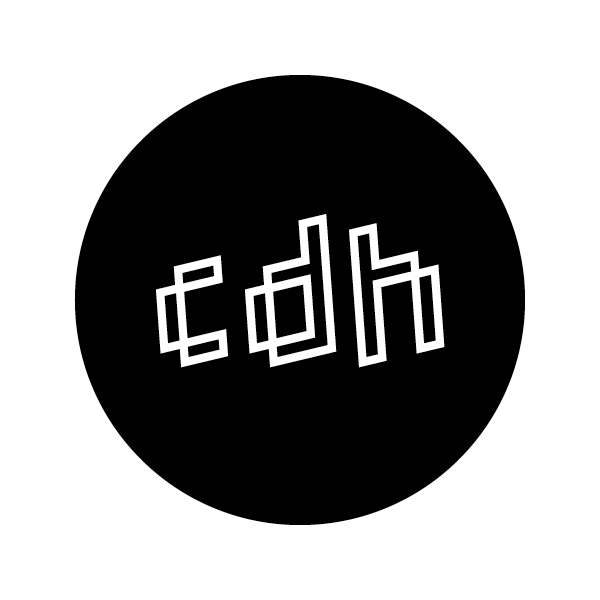- CDH events are open to the TMU community and beyond.
- Also, check out the workshops hosted by the Collaboratory!
The Centre for Digital Humanities (CDH) is temporarily located on the 4th floor of the Podium (POD) building (where the School of Law is currently situated) and is planning to have a permanent home in the Library building (LIB) in the future. CDH events are held virtually (on Zoom) and in-person in the TMU Libraries’ Collaboratory.
Join us! If you have an idea for a CDH-hosted event or a question, please contact CDH Director Jason Boyd (jason.boyd@torontomu.ca) or CDH Manager Reg Beatty (rbeatty@torontomu.ca).
CDH Virtual
Drop-Ins
Each month, weekly drop-ins will be dedicated to a specific theme. Tiny Tools Tour, Web Walks, and DH Workbench are explorations of a digital resource or tool for research, creativity, and/or teaching. Stories in Play features discussion of entries in the Playable Stories Archive and episodes of the Playable Stories: Unarchived podcast, both of which are focused on storytelling in games. Reading Bytes is a reading group for discussion of published digital humanities scholarship. DH@TMU Talks feature CDH members presenting their research.
IRDL SPEAKER SERIES @ YORK
Tuesday February 3
11:45am-1:00pm EST on Zoom
Accuracy/ Authenticity/ Verisimilitude: what we demand and should expect from historical video games
Abby Hartman
With billions of players worldwide, history-themed video games are increasingly important sources of historical knowledge. Video games are unique in the way that they prompt engagement with history and shape the way that players understand the past. But what history are these players actually learning? This paper explores the stories that video games tell us about the past and discusses whether we should demand they be historically accurate.
Abbie Hartman is a cultural and public historian based at Macquarie University in Sydney, Australia. Her research investigates how public history is influenced by the context in which it is created and speculates on how this may affect public understandings of the past.
Chaired by Communication and Culture MA student and Institute for Research on Digital Literacies (IRDL) Student Representative, Joel White.
PROCEDURAL WRITING WORKSHOP
Tuesday February 10
noon-1:00pm EST on Zoom
Creating procedural bots with Tracery and Blue Bots, Done Quick!
This workshop will introduce participants to the Tracery editor for creating generative grammars, and how to use Tracery grammars to create a text bot on Bluesky using Blue Bots, Done Quick!
READING BYTES
Tuesday February 24
10:00am-noon EST
Critical AI Literacy
Jason Boyd
Join us for a discussion of Lauren Klein et alia’s “Provocations from the Humanities for Generative AI Research.” Pre-print, arXiv, 26 Feb. 2025.
https://arxiv.org/html/2502.19190v2.
(available online)

